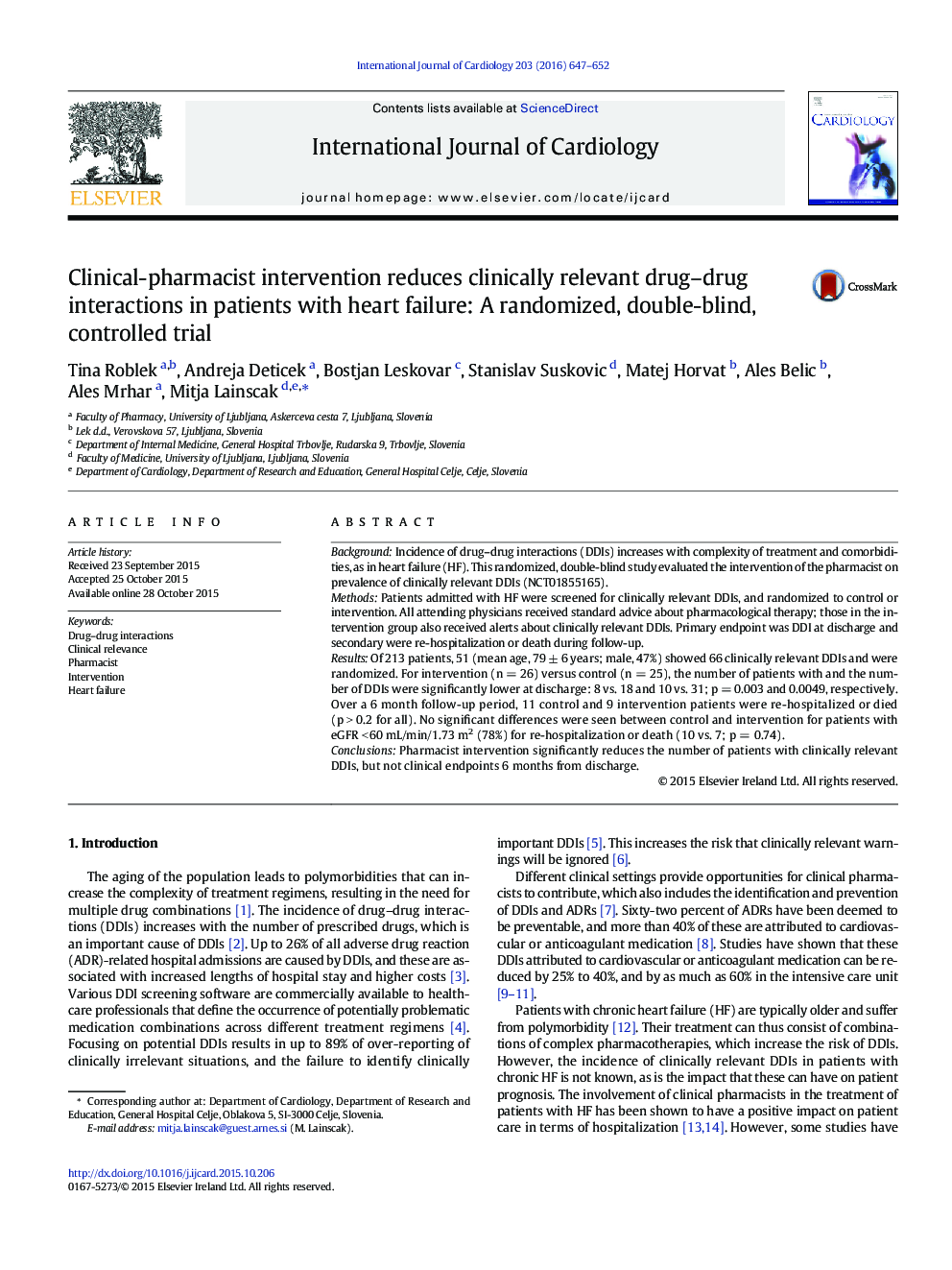| Article ID | Journal | Published Year | Pages | File Type |
|---|---|---|---|---|
| 5965675 | International Journal of Cardiology | 2016 | 6 Pages |
BackgroundIncidence of drug-drug interactions (DDIs) increases with complexity of treatment and comorbidities, as in heart failure (HF). This randomized, double-blind study evaluated the intervention of the pharmacist on prevalence of clinically relevant DDIs (NCT01855165).MethodsPatients admitted with HF were screened for clinically relevant DDIs, and randomized to control or intervention. All attending physicians received standard advice about pharmacological therapy; those in the intervention group also received alerts about clinically relevant DDIs. Primary endpoint was DDI at discharge and secondary were re-hospitalization or death during follow-up.ResultsOf 213 patients, 51 (mean age, 79 ± 6 years; male, 47%) showed 66 clinically relevant DDIs and were randomized. For intervention (n = 26) versus control (n = 25), the number of patients with and the number of DDIs were significantly lower at discharge: 8 vs. 18 and 10 vs. 31; p = 0.003 and 0.0049, respectively. Over a 6 month follow-up period, 11 control and 9 intervention patients were re-hospitalized or died (p > 0.2 for all). No significant differences were seen between control and intervention for patients with eGFR < 60 mL/min/1.73 m2 (78%) for re-hospitalization or death (10 vs. 7; p = 0.74).ConclusionsPharmacist intervention significantly reduces the number of patients with clinically relevant DDIs, but not clinical endpoints 6 months from discharge.
